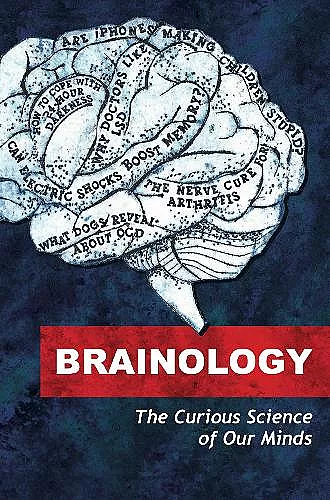Brainology
The Curious Sciences of Our Minds
Format:Paperback
Publisher:Canbury Press
Published:3rd May '18
Should be back in stock very soon

This non-fiction paperback, "Brainology" from Mosaic Science, was published 3rd May 2018 by Canbury Press.
ISBN: 9781912454006
Dimensions: unknown
Weight: unknown
272 pages